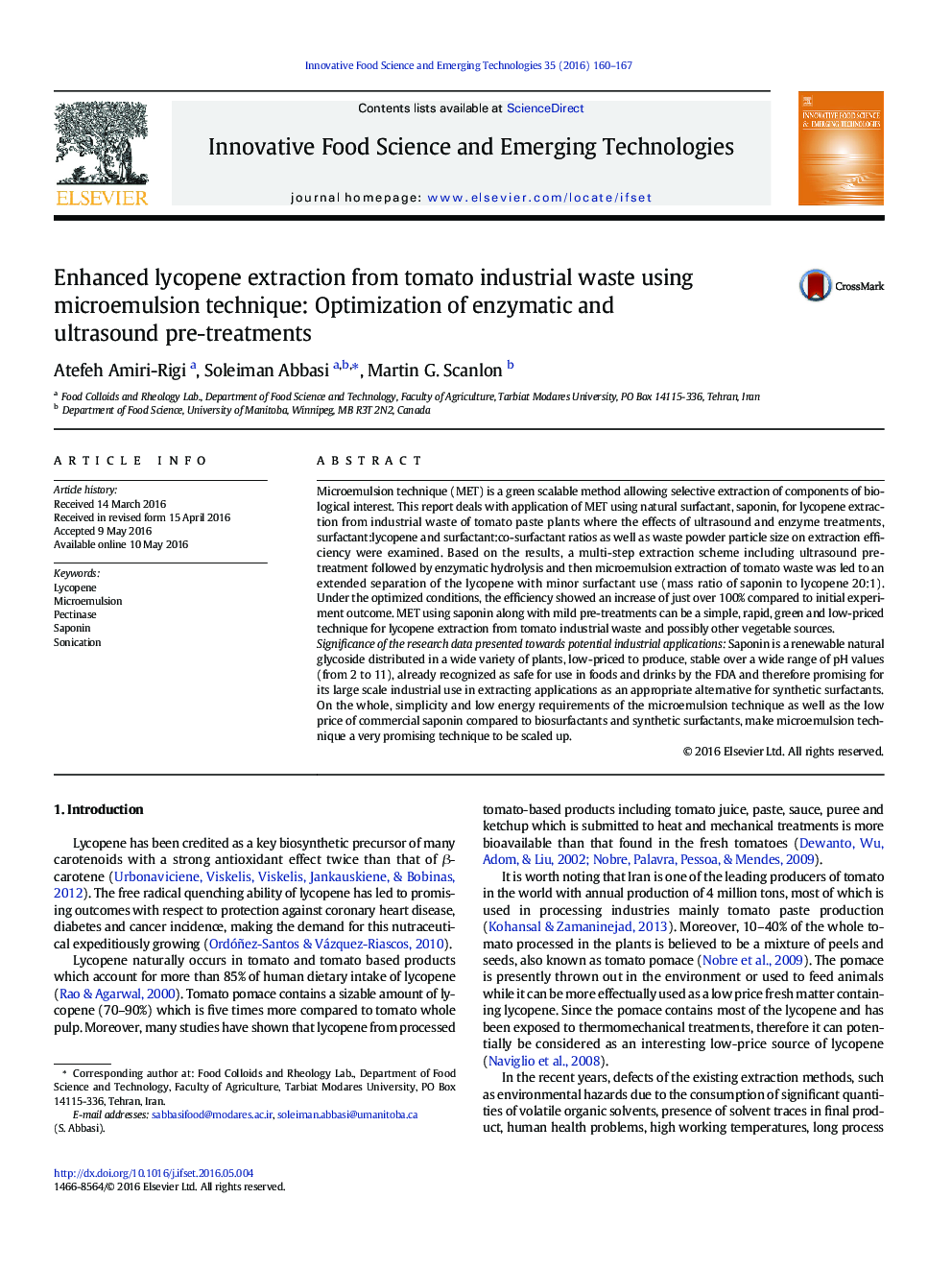| کد مقاله | کد نشریه | سال انتشار | مقاله انگلیسی | نسخه تمام متن |
|---|---|---|---|---|
| 2086268 | 1545531 | 2016 | 8 صفحه PDF | دانلود رایگان |
• Microemulsion would be a promising technique for extraction of lycopene.
• Extraction with optimum particle size of tomato waste powder raised yield to 24%.
• Optimization of SOR and SCR improved efficiency up to about 26% and 29%, respectively.
• Combined sonication and enzymatic pretreatments improved efficiency up to 39%.
• Extraction efficiency increased to just over 100% in the best operating conditions.
Microemulsion technique (MET) is a green scalable method allowing selective extraction of components of biological interest. This report deals with application of MET using natural surfactant, saponin, for lycopene extraction from industrial waste of tomato paste plants where the effects of ultrasound and enzyme treatments, surfactant:lycopene and surfactant:co-surfactant ratios as well as waste powder particle size on extraction efficiency were examined. Based on the results, a multi-step extraction scheme including ultrasound pre-treatment followed by enzymatic hydrolysis and then microemulsion extraction of tomato waste was led to an extended separation of the lycopene with minor surfactant use (mass ratio of saponin to lycopene 20:1). Under the optimized conditions, the efficiency showed an increase of just over 100% compared to initial experiment outcome. MET using saponin along with mild pre-treatments can be a simple, rapid, green and low-priced technique for lycopene extraction from tomato industrial waste and possibly other vegetable sources.Significance of the research data presented towards potential industrial applicationsSaponin is a renewable natural glycoside distributed in a wide variety of plants, low-priced to produce, stable over a wide range of pH values (from 2 to 11), already recognized as safe for use in foods and drinks by the FDA and therefore promising for its large scale industrial use in extracting applications as an appropriate alternative for synthetic surfactants. On the whole, simplicity and low energy requirements of the microemulsion technique as well as the low price of commercial saponin compared to biosurfactants and synthetic surfactants, make microemulsion technique a very promising technique to be scaled up.
Journal: Innovative Food Science & Emerging Technologies - Volume 35, June 2016, Pages 160–167
